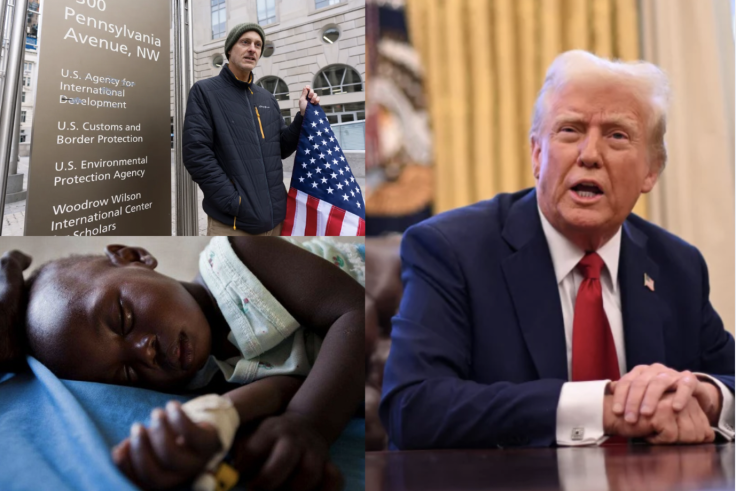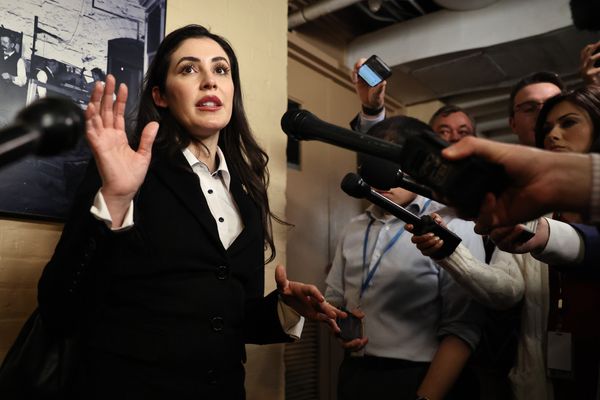
An unprecedented standoff unfolded Monday morning as USAID employees arrived at their Washington, D.C., headquarters—only to be denied entry. Despite a federal judge's ruling temporarily halting President Donald Trump's mass purge of the agency, security officials and federal officers turned away staffers at the door.
The Trump administration confirmed that USAID had been removed from the lease of the building it occupied for decades.
USAID's interior signs were covered with tarps. A front desk officer informed employees that only a handful of individuals, no more than ten, were permitted inside. "Just go...Why are you here?" A man who identified himself as a USAID official told staff, as reported by The Associated Press.
The move is part of a broader effort by Trump and Elon Musk, head of the Department of Government Efficiency (DOGE), to dismantle USAID, which they claim is wasteful and misaligned with the administration's agenda.
Created in the early 1960s, the United States Agency for International Development (USAID) oversees U.S. humanitarian aid efforts worldwide and employs roughly 10,000 people, two-thirds stationed abroad.
In January, Trump issued an executive order freezing foreign aid, which shutdown critical U.S.-funded humanitarian programs. Secretary of State Marco Rubio attempted damage control by issuing waivers to protect emergency food and life-saving aid. Those efforts have yet to restore basic operations, according to USAID officials and aid organizations.
The lockout unfolded despite U.S. District Judge Carl Nichols' ruling late Friday, which temporarily blocked Trump's directive to place thousands of USAID employees on leave.
Nichols acknowledged that workers faced "irreparable injury" and warned that Foreign Service officers stationed in conflict zones could lose access to life-saving security alerts.
"No future lawsuit could undo the physical harm that might result if USAID employees are not informed of imminent security threats," Nichols wrote.
The funding freeze has created a life-or-death crisis, humanitarian groups warn. The Norwegian Refugee Council calls it the most devastating cut in its 79-year history and leaves hundreds of thousands across 20 countries without critical aid. The UN cautions millions are now "in jeopardy." Key programs have been halted, from Ebola screenings in Uganda to maternal health services in Afghanistan and malaria treatments in Myanmar. U.S. security efforts to combat human trafficking and fentanyl smuggling have also stalled. Beyond the immediate humanitarian toll, experts warn the freeze weakens global stability and allows China to expand its foothold, according to the Better World Campaign.
© 2025 Latin Times. All rights reserved. Do not reproduce without permission.









